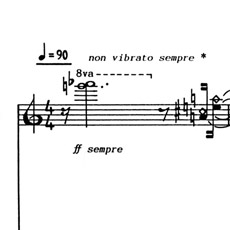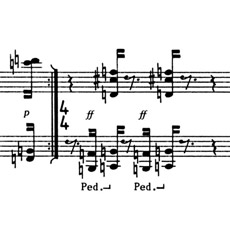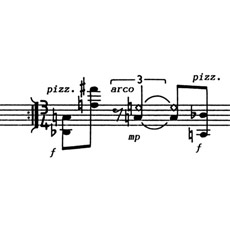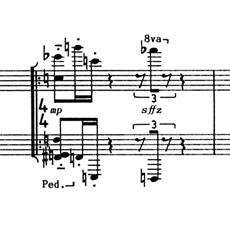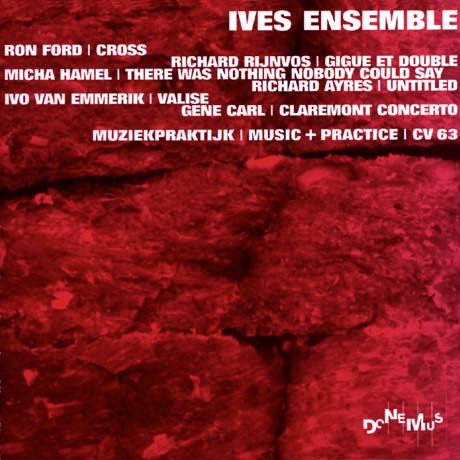Gigue et Double
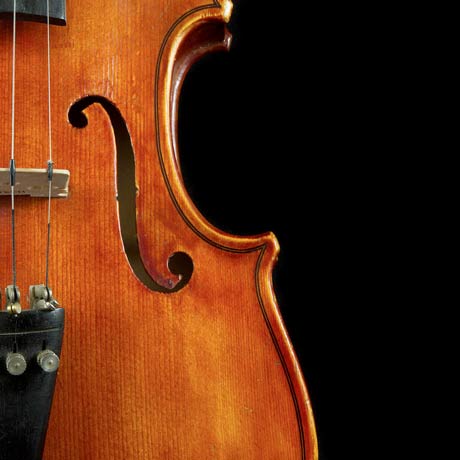
for violin & piano (1992)
14 minutes | no.9
The most striking relation of Gigue et Double with
the rest of my oeuvre, is the analogy in title with an earlier
work, namely Sarabande et Double (for 23 musicians).
The latter composition is a sequel to Radio I (my
radiophonic composition on a text by Samuel Beckett), in which
a handful of notes (borrowed from my dear friend and fellow
composer Micha Hamel) stood for the production of the entire
musical part within the radio play. Sarabande et Double is an answer to the question whether it would be possible
to generate a second composition out of the very same material;
hence the designation: ‘Double’.
As if this wasn’t enough, the part for violin from Radio I brought about its very own spin-off, which
resulted in Gigue et Double. In all, four reminiscences
of the radio play-music pass by, which do not so much function
as quotations, but initiated the rest of the violin part and
the entire part for piano.
The score is preceded by a quotation from the book ‘Mr. Palomar’ by Italo Calvino, which illustrates as no other the motto of Gigue et Double:
"In other words, if the model does not succeed in transforming reality, reality must succeed in transforming the model".
Scoring
violin & piano
Commissioned by
Amsterdams Fonds voor de Kunst (Arts Council of the City of Amsterdam)
Written for & Dedicated to
Josje ter Haar
Première
14 January 1993
Stadsschouwburg Odeon, Zwolle (Netherlands)
Josje ter Haar (violin)
John Snijders (piano)
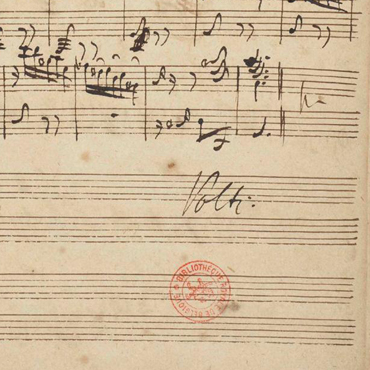
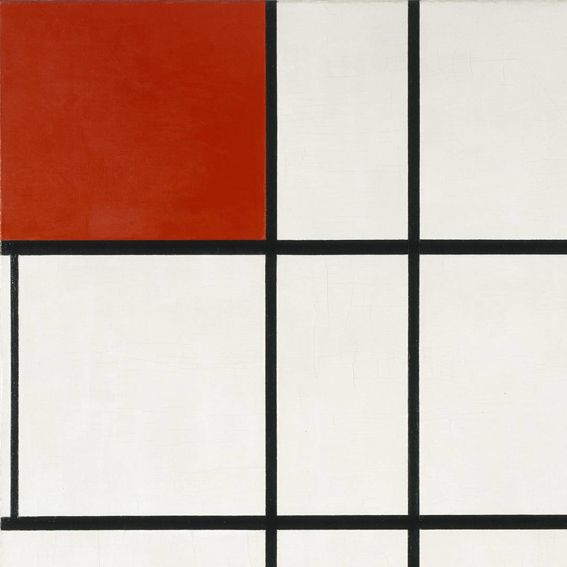
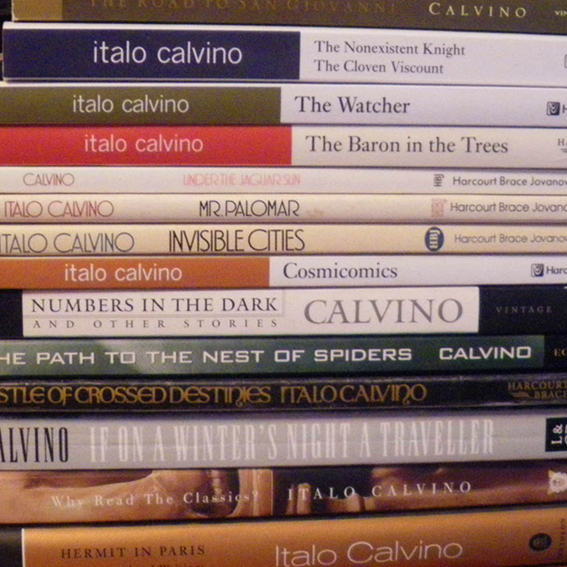
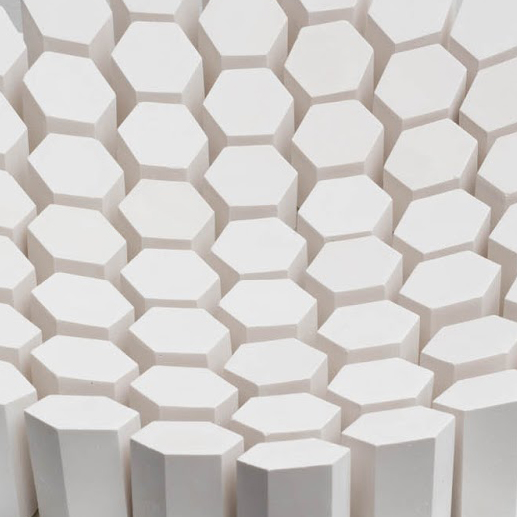
Audio fragments
Performance
Josje ter Haar - violin
John Snijders - piano
Recording
15 January 1996, Theater Romein, Leeuwarden (Netherlands)
by Eclat Music Productions
Gigue et Double
excerpt 1
Gigue et Double
excerpt 2
Gigue et Double
complete work
